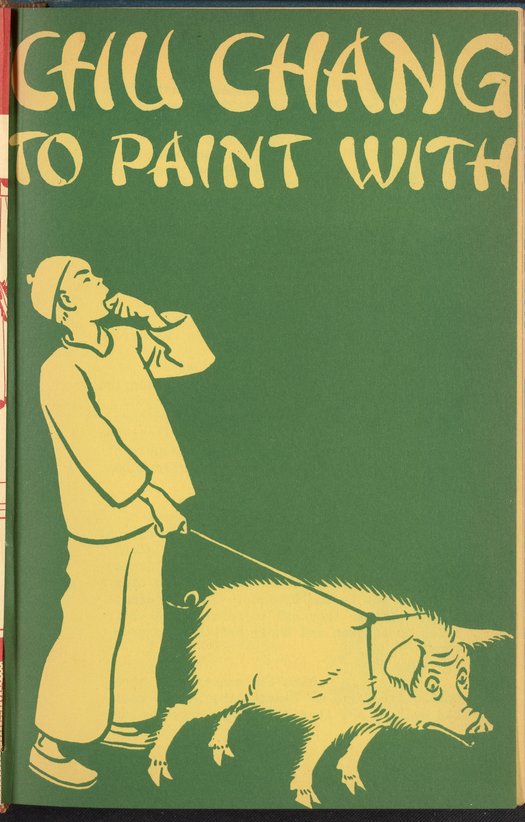"Chu Chang" to Paint With
- 1940s

Booklet corresponding to a radio broadcast program created by the National Paint, Varnish, and Lacquer Association. The booklet describes the origin of paintbrush bristles beginning by explaining how bristles were processed from the coarse hair grown by hogs into paintbrushes in China, then how to properly use and care for a paintbrush. The booklet misidentifies "Chu Chang" as the Chinese phrase for bristles, belittling the Chinese language. A more accurate Chinese translation is 硬毛 (yìngmáo). Contains racially stereotyped imagery and descriptions. Includes small stylized illustrations throughout and decorated covers.
The National Paint, Oil and Varnish Association, Inc. was formed in 1933 and was the national professional association representing all branches of the paint, oil, and varnish industries.
| Property | Value |
|---|---|
| Creator of work | |
| Place of publication | |
| Format | |
| Genre | |
| Extent |
|
| Language | |
| Subject | |
| Rights | Public Domain Mark 1.0 |
| Credit line |
|
| Department | |
|---|---|
| Physical container |
|
National Paint, Varnish. “‘Chu Chang’ to Paint With.” Pamphlets Corresponding to Radio Shows Produced by the National Paint, Varnish and Lacquer Association. Washington (D.C.), 1940–1949. TP935 .K46. Science History Institute. Philadelphia. https://digital.sciencehistory.org/works/79r2miy.
This citation is automatically generated and may contain errors.
| Previous image | shift + or , |
| Next image | shift + or . |
| Pan image | |
| Zoom in | + or shift + |
| Zoom out | - or shift + |
| Zoom to fit | 0 |
| Close viewer | esc |
|
Also Mouse click to zoom in; shift-click to zoom out. Drag to pan. Pinch to zoom on touch. |
|
The Science History Institute recognizes there are materials in our collections that may be offensive or harmful, containing racist, sexist, Eurocentric, ableist, or homophobic language or depictions. The history of science is not exempt from beliefs or practices harmful to traditionally marginalized groups. The Institute is engaged in ongoing efforts to responsibly present and address the evidence of oppression and injustice inextricable from the history of science. If you would like to learn more about our ongoing efforts or if you encounter harmful, inaccurate, or insufficient descriptions, please contact us at digital@sciencehistory.org.






